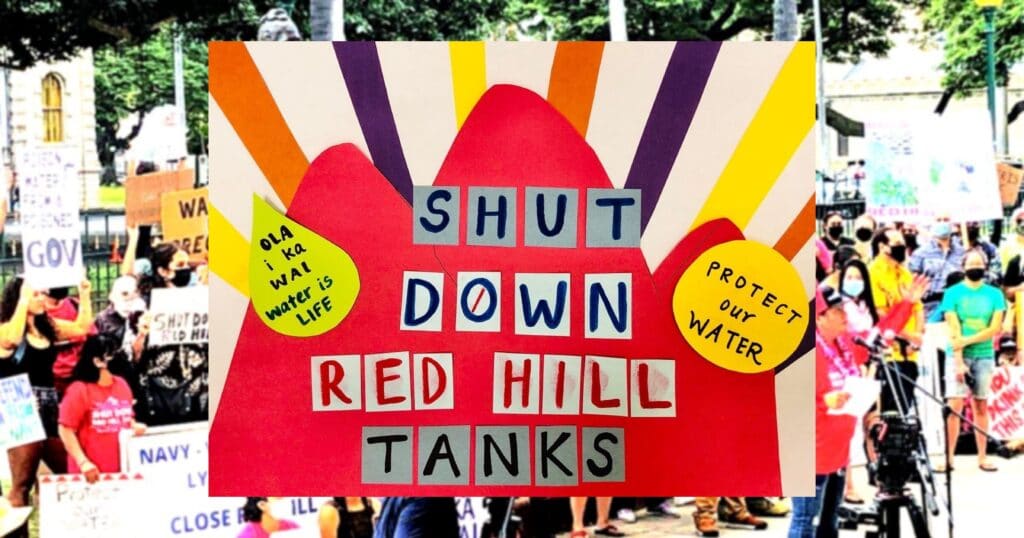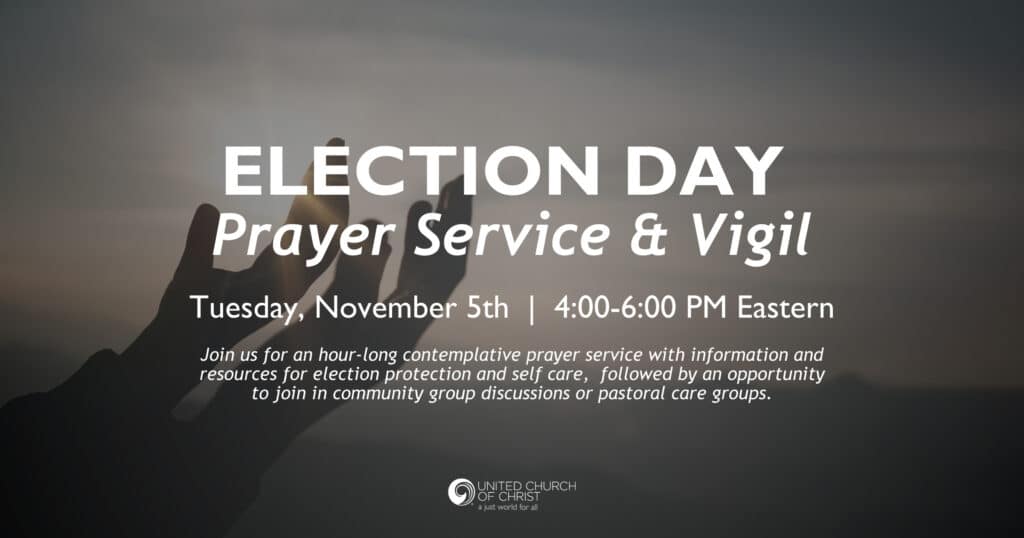Tainted drinking water on Oahu draws UCC response
United Church of Christ members in Hawaii are responding to a water contamination crisis. They’ve brought clean water to an affected neighborhood and are calling for a shutdown of military fuel tanks that are the source of the trouble.
It’s part of a struggle by local government authorities — and religious and secular activists — to protect the island of Oahu’s entire water supply.
At issue are giant fuel tanks placed underground by the U.S. Navy in the early 1940s. They sit above an aquifer that supplies much of Honolulu’s drinking water. They’re also within a mile of the city’s Halawa Shaft, part of a water utility that serves some 1 million customers throughout Oahu. The tanks leaked, not for the first time, in November 2021.
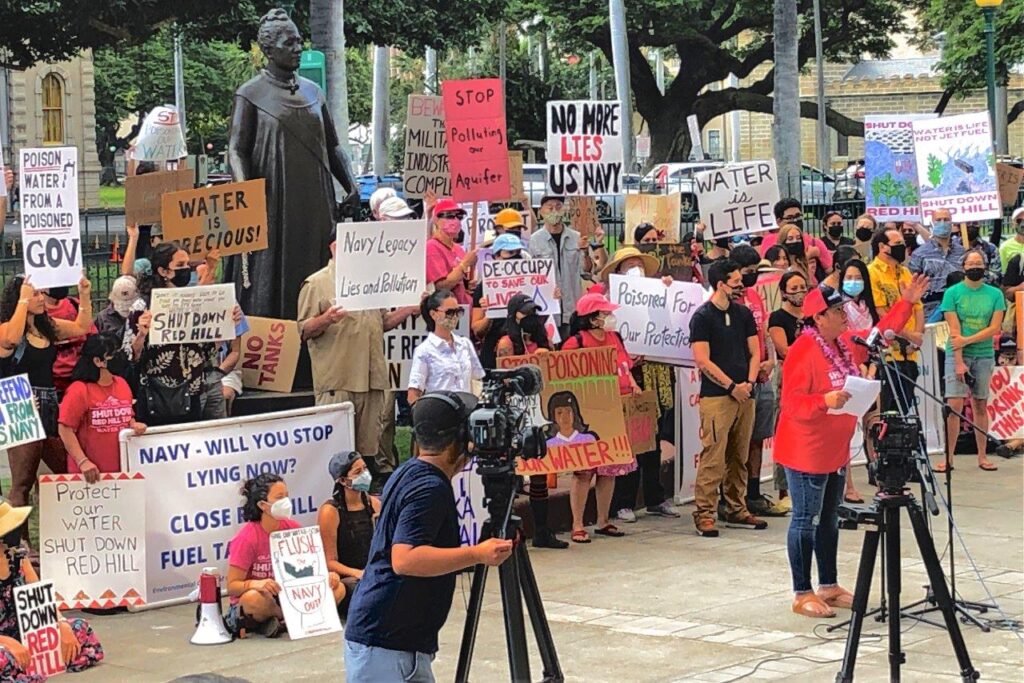
The Navy announced Jan. 11 that it will empty the tanks after weeks of contesting a state order to do so. Activists welcomed the decision, but continued to express concern. The Navy has said “operator error” caused the leak. The state’s emergency order would not prevent the Navy from using the tanks again in the future.
Among the activists calling for “the permanent shutdown of the tanks” is the Justice and Witness Missional Team of the UCC’s Hawaii Conference. In a Jan. 12 statement, it noted that the tanks “are aging and deteriorating and have been described by a state Department of Health officer as ‘an inevitable ticking time bomb.’“
Disaster response — and advocacy
The November leak at the Red Hill Bulk Fuel Storage Facility caused the Navy to evacuate 3,000 residents from its Honolulu base.
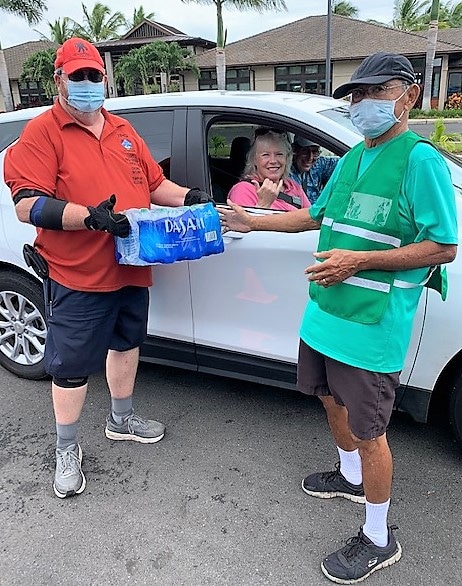
Nearby civilian neighborhoods were affected, too. Hawaii Conference Disaster Coordinator Danny Tengan worked with two partner agencies — Hawai’i Voluntary Organizations Active in Disaster and the Island Preparedness Group — to bring bottled water to residents of the Kapilina Beach Homes. Volunteers from Central Union Church and Hawai’i Kai UCC helped. Moanalua Community Church, UCC, also suffered tainted water, a Conference official said.
Activists — ranging from the Sierra Club to Native Hawaiian groups — have warned that a similar crisis could befall the entire island if the tanks aren’t shut down.
“Once drinking water is contaminated, where will we get clean water?” said Hawaii Conference Minister David Popham. “It cannot be piped in from a neighboring island, much less a neighboring state.”
“I have written letters, submitted testimonies, waved signs, and sent emails regarding the fuel tanks at Kapūkaki, also known as Red Hill,” said Kristen Young of Honolulu, a member of UCC–Judd Street. “But I’m still unsure of how to effectively convince someone that’s allowing fuel to seep into our water supply to shut down the source of contamination.
“Storing millions of gallons of fuel just 100 feet above an island’s aquifer shows a complete disregard for life, and this is not an isolated incident. The only way this could have happened in the first place is if protecting the land, water, and people was never really the goal to begin with.”
‘Doers of justice’
The Red Hill facility is enormous. Its 20 steel-lined tanks can store up to 250 million gallons of fuel. They’ve had a history of leaks, according to the U.S. Environmental Protection Agency. The Sierra Club is among those urging President Biden and the U.S. Department of Defense to get involved.
The UCC’s Justice and Witness team in Hawaii agrees that action is needed.
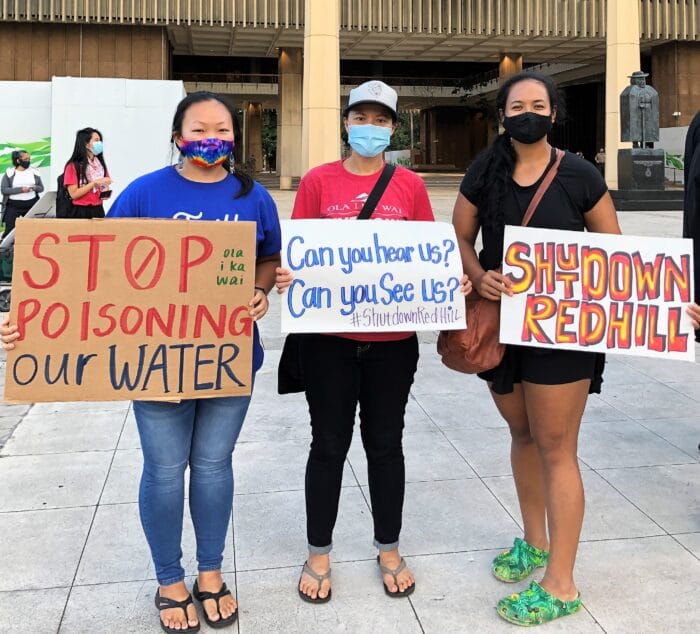
“As doers of justice, we are called to resist this environmental threat to the wellbeing of our brothers and sisters,” its Jan. 12 statement said. “We call on our churches and our leaders to join in demanding the draining of the Kapūkakī (Red Hill) fuel storage tanks and closure of the Navyʻs operation of the underground tanks.”
Media reports on Jan. 11 indicated the Navy now wants to remove contaminated water from its Red Hill shaft by treating it and flushing it into a nearby stream.
Young said it’s a further example of why the world should listen instead to Native Hawaiian wisdom about caring for the earth — and for water.
‘Most vital resource’
“Many of us, myself included, grew up thinking the military’s main function was to protect us and keep us safe — so much so that some will question those speaking out in protection of clean water instead of those threatening a population’s water supply,” she said. “…We need to earnestly question the military and their presence in Hawaii if their billion-dollar budget in the name of national security does not even afford us clean water, a basic necessity for life.
“The ‘āina [land] and wai [fresh water] that sustain us have always been best stewarded by those who have lived in harmony with these very lands and waters for generations. Native and Indigenous people all over the world know the military cannot be trusted to care for such precious environmental resources on their own.
“As people nourished by water, connected by water, baptized by water, and who depend on water for life, let’s make sure to protect this most vital resource on Oahu for the generations to come.”
Related News
UCC to offer Election Day Prayer Service and Vigil
On Election Day, Nov. 5, join the Rev. Karen Georgia A. Thompson together with United Church...
Read MoreGoing beyond the blessing: Churches emulate St. Francis’ care for animals
https://www.youtube.com/watch?v=lu3LYwhLxCo UCC News presents a video news story on the...
Read MoreUCC leaders invite all to global celebration of Reformation Sunday
This Reformation Sunday, leaders from the United Church of Christ will participate in a global...
Read More